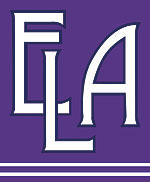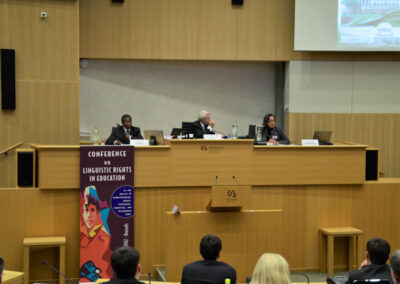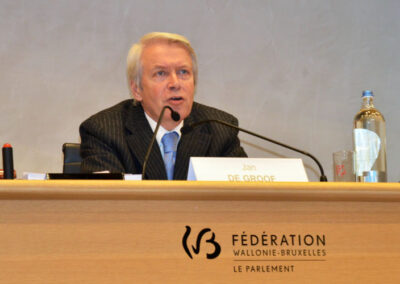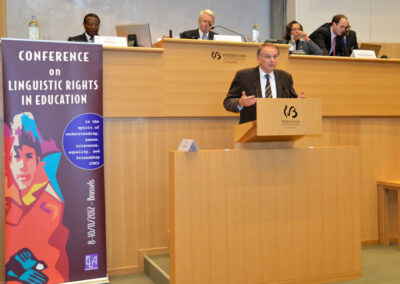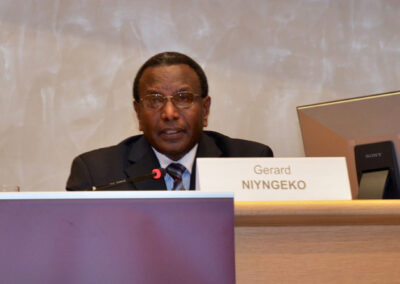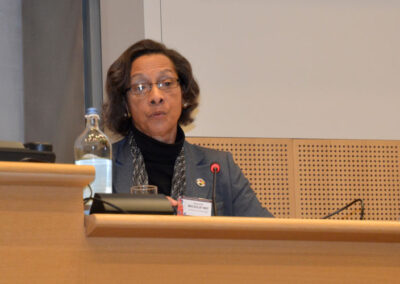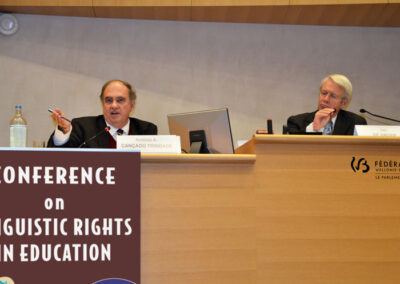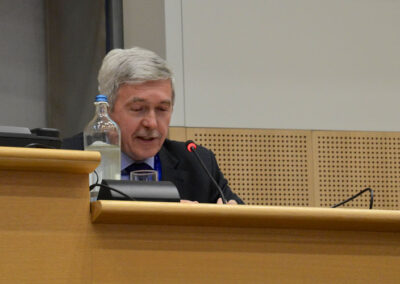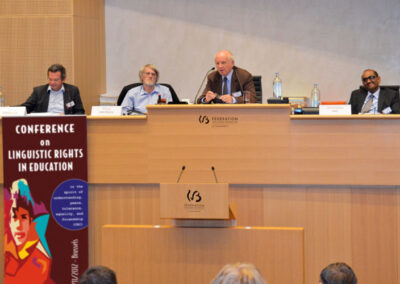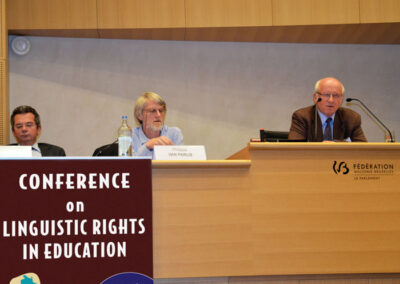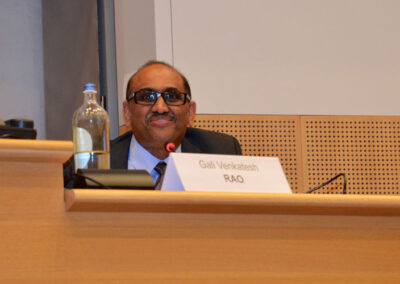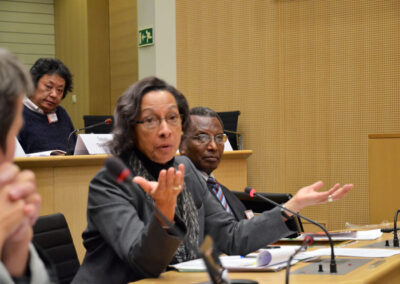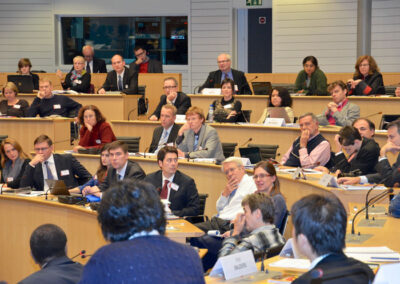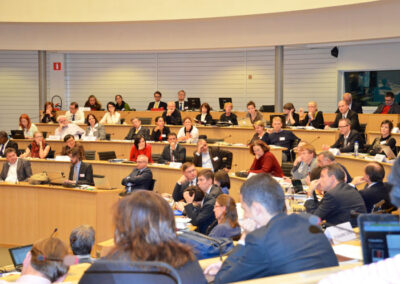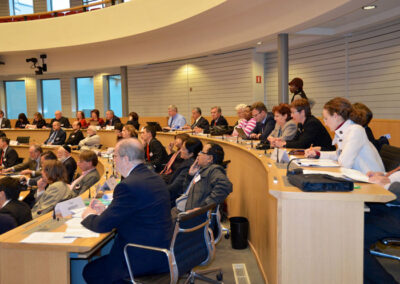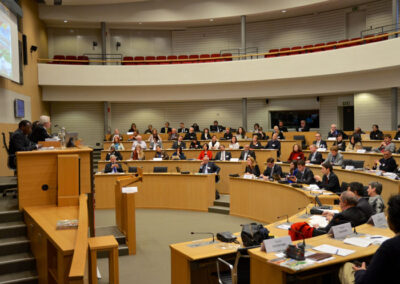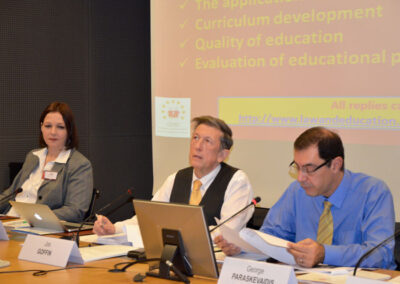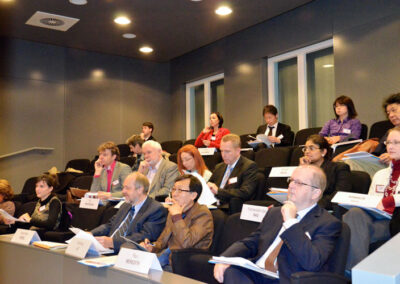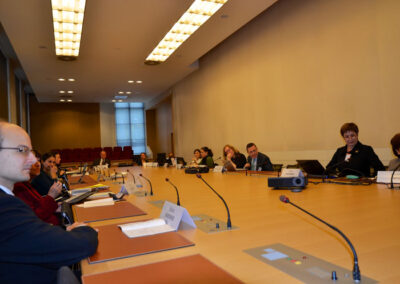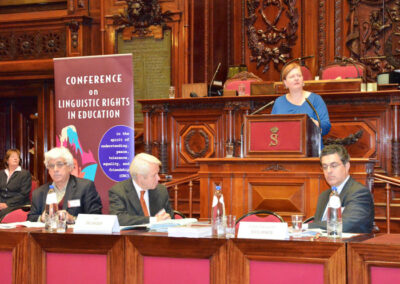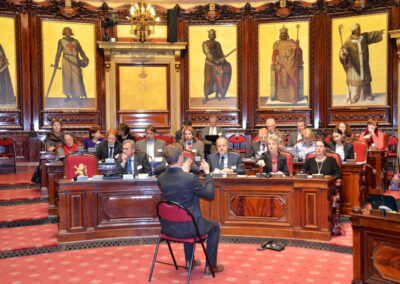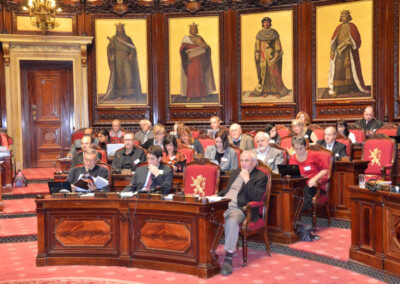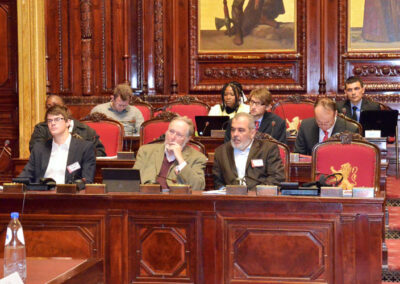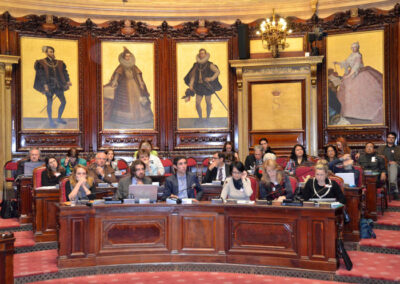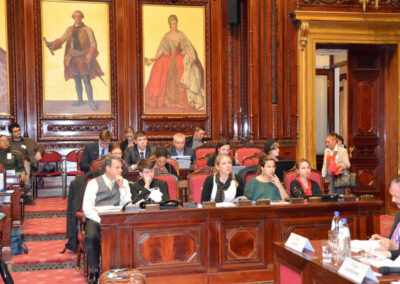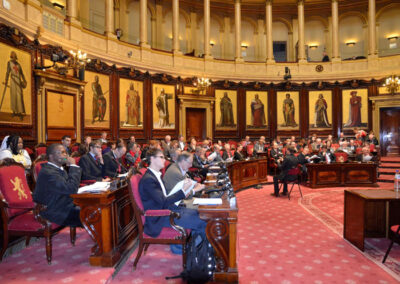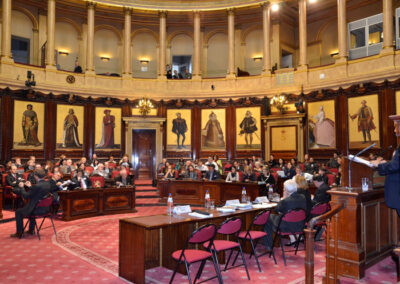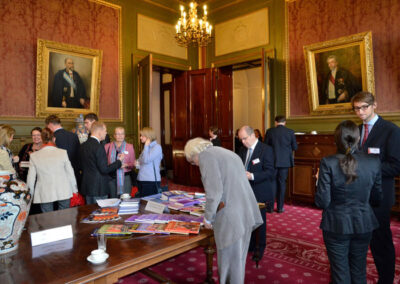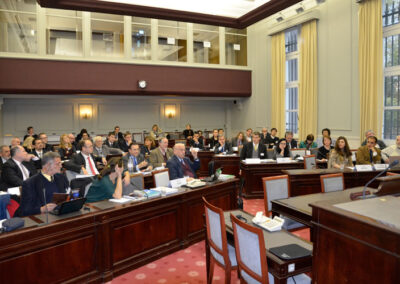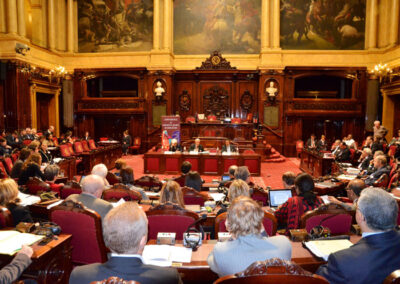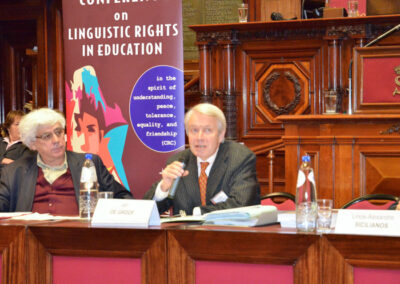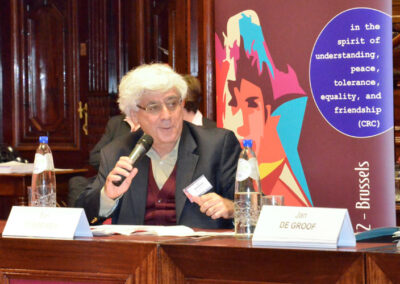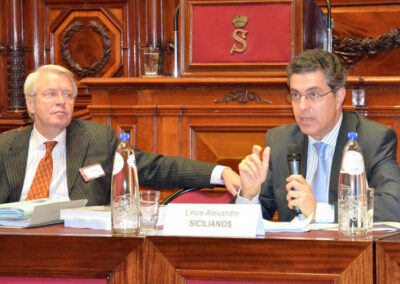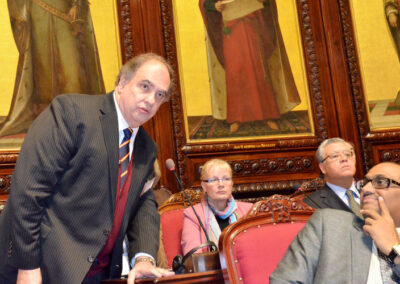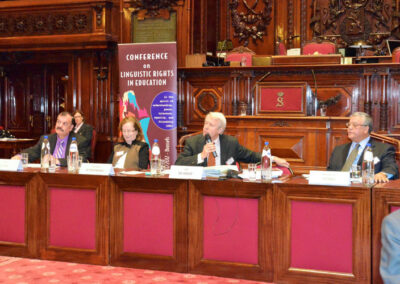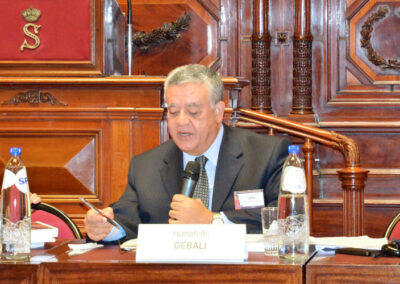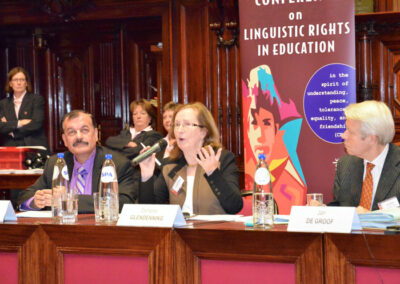Language Policies and Legal Action to overcome Language Barriers in Education
Description of the action
Eurydice statistics (Based on Eurostat) cover refugee children under immigrant children (see Report: Integrating Immigrant Children into Schools in Europe. Brussels 2004). The proportion of foreign nationals aged under 15 in the total population of those aged under 15 at 1 January 2001 is (some examples): BE (6,5 %), CZ (0,8 %), DK (5,8 %), DE (10,2 %), ES (2,1 %), FR (4,0 %), LU (39,3 %), HU (0,6 %), NL (4,2 %), AT (10,5 %), SI (1,1 %), FI (1,8 %), SE (5,2 %), UK (2,5 %), NO (3,5 %). The number of asylum applications per 1000 inhabitants (asylum ratio) of 2002 is (corresponding examples): BE (1,82), CZ (0,83), DK (1,11), DE (0,86), ES (0,16), FR (0,86), LU (2,35), HU (0,63), NL (1,16), AT (4,9), SI (0,33), FI (0,66), SE (3,71), UK (1,19), NO (3,28). Comparison of the two numbers show, that proportion of refugee children among immigrant children in AT, SE and NO are significantly and in BE, LU, UK and NL higher than on average.
Education should serve as a bridge to participation of non-EU member states long-term residents, including migrants, refugees and asylum seekers in the host society.
Whether the outcome is successful will depend to a significant extent on instruction in schools and whether they succeed in acquiring the basic skills and competences. As children cannot be blamed for their language deficiency, host states have the responsibility for overcoming language barriers in and through education. An important barrier to overcome is the first language of migrants, refugees and asylum seekers that is nearly always not the language of instruction. Most of the time they do not have any knowledge of the language of instruction upon arrival in a EU Member State. Specific integration measures are provision of interpreters in schools, school-based support measures such as compensation for language needs (e.g. teaching the host country language of instruction; programs to introduce very young children to the language of instruction), school-based recognition of non-EU member states long-term residents’ culture (e.g. measures to support the language and culture of origin), etc…
Contact details of the coordinator:
Prof. Dr. Gracienne Lauwers
Universiteit Antwerpen
Arthur Goemaerelei 52
B-2018 ANTWERPEN
Belgium
Phone: +32/3/238.44.23
mailto: glauwers@me.com
Principle results:
- Project website containing the series of country reports
- Project booklet
- Country Reports
- Proceedings
- Press release
- Kick-off meeting with stakeholder organisations and setting up an European alliance follow-up group (Austria, 21-23/12/2011)
- Preparatory seminar for the preparation of the international conference (Belgium, 6/09/2012)
- International conference Pictures Language Policies and Legal Action to overcome Language Barriers in education (see below)
- Meeting on the evaluation of the project, on the 2013 activities of the European alliance follow-up working group, and on the draft final report (Austria, 15-17/11/2012)
Target group
Education law and policy experts, members of the school inspectorate in European countries, representatives from European networks of teachers’ unions, ngo’s protecting the educational rights of migrants, refugees and asylum seekers, policymakers, migration experts and advocacy groups
Activity Calendar
| 21 December 2011 | Participatory kick-off meeting of the SC |
| 15 March 2012 | Collection of data |
| 31 March 2012 | Comparative policy analysis and recommendations |
| 30 April 2012 | First interim report |
| 30 April 2012 | Quality control workshop by the steering committee |
| 30 April 2012 | Project website |
| 19 July 2012 | Editing of the reports |
| 31 July 2012 | Native English language screening |
| 29 August 2012 | Pre-press of the publication |
| 31 August 2012 | Second interim report |
| 31 August 2012 | Printing of the publication |
| 31 August 2012 | Printing of the project brochure |
| 31 August 2012 | Press release for the international conference |
| 26 October 2012 | Preparatory activities for the international conference |
| 11 October 2012 | International conference and action plan for the European alliance working group |
| 15 November 2012 | Internal quality control report |
| 15 November 2012 | External quality control report |
| 31 January 2013 | Final report |
Country Reports and Cases (publication foreseen by October 2012)
A compilation of country reports that will be elaborated during the course of the project by the participants of the project or other experts, and that are directly linked with the project focus, will be published in the peer reviewed International Journal for Education Law and Policy (IJELP), the official Journal of ‘The European Association for Education Law and Policy’.
To order the publication: http://www.wolfpublishers.com
Introduction
European Legal Framework of Language Rights in Education (2012)
Legislating for Higher Education in SEE Countries – the Language Question (2005)
Linguistic Rights and Evolving Normative Framework (2005)
Mother Tongue Education and the Law – a Legal Review (2005)
Multilingualism and Conflict Prevention – Speaking the Language(s) of Integration (2005)
The Legal Foundations of Linguistic Rights – Application to the Field of Education (2005)
Country reports
Albania Australia Austria Azerbaijan Belarus Belgium Bosnia Herzegovina Denmark Estonia Fyrom Georgia Germany Hungary 1 Hungary 2 Italy Latvia Lithuania Moldova New Zealand Norway Poland Romania 1 Romania 2 Russia 1 Russia 2 Slovakia 1 Slovakia 2 Slovenia South Africa Spain 1 Spain 2 Sweden Turkey 1 Turkey 2 UK Northern Ireland UK Ukraine
Copyright © 2020-2022 ELA | Privacy policy
